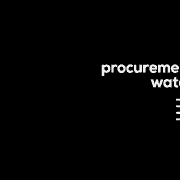|
Getting your Trinity Audio player ready...
|
In 2015 the South African government introduced a central database for service providers interested in state tenders. Then finance minister Nhlanhla Nene emphasised the need for a modern system that would be managed by Treasury with the aim of better facilitating procurement projects. About R500-billion flows through the procurement systems at different spheres of government on an annual basis, he said, and it was important that these funds be spent wisely and effectively where they are needed. But will the central supplier database (CSD) put an end to the loss of taxpayers’ money through dodgy procurement practices?
Our heroes for this week are four University of Johannesburg students who not only think CSD is not the only answer, but have responded to the problem of tender fraud by designing a system that aims to curb tender corruption in the state’s procurement system. Corruption Watch first reported on Kriterion in December last year.
Recognising tender fraud as a “real African government problem”, the students developed the project with the South African tender process in mind. They examined the country’s standard bidding documentation and looked at how this can be extracted from being paper-based to computer-based, which will improve accountability, he explains.
A recent ITWeb report on Kriterion, published last week, said the system takes government’s move to advertise tenders online a few steps further by eliminating the awarding of tenders to government officials who can be bribed and are prone to corruption.
Team member Chukwudi Obodoekwe told the online news site that it works from the advertising stage, right through to the evaluation of bids, using the complex criteria in algorithms published by the South African government, to the awarding of tenders and post-project or post-milestone delivery ratings.
“Our system has a bidding evaluation criterion, which is divided into a financial rating, security rating, technical and credit rating to evaluate the company or persons applying for the tender.”
The system also has a built-in a critical reality-check feature to allow industry experts to submit estimates of a realistic bid for a particular tender.
“Corruption in the tender process is a very big problem in South Africa right now,” Kennedy Siguake – who is in charge of Kriterion’s mobile services – told Corruption Watch back in December.
He said the main problem is figuring out why certain people got certain projects when at times they do not comply with criteria. “We are trying to make the whole process transparent to all parties involved in the bidding process,” he said, adding that corruption stands in the way of the country’s growth and development and it was the right time to develop a system that could remedy the defects of the current system.







